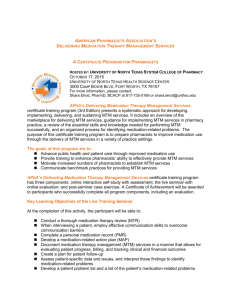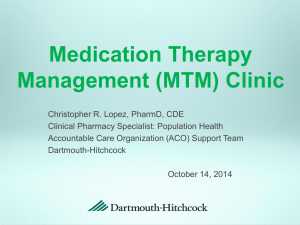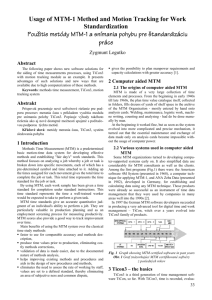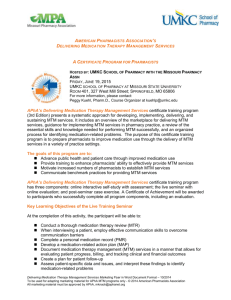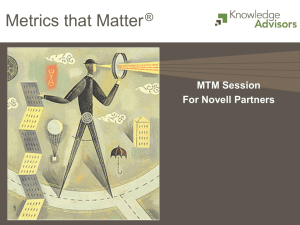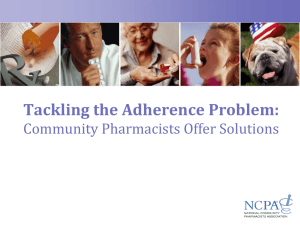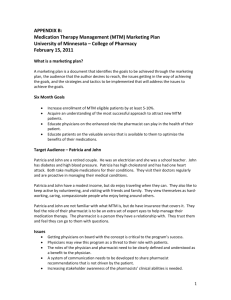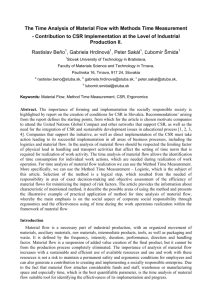Paper Skeleton and Outline Example
advertisement
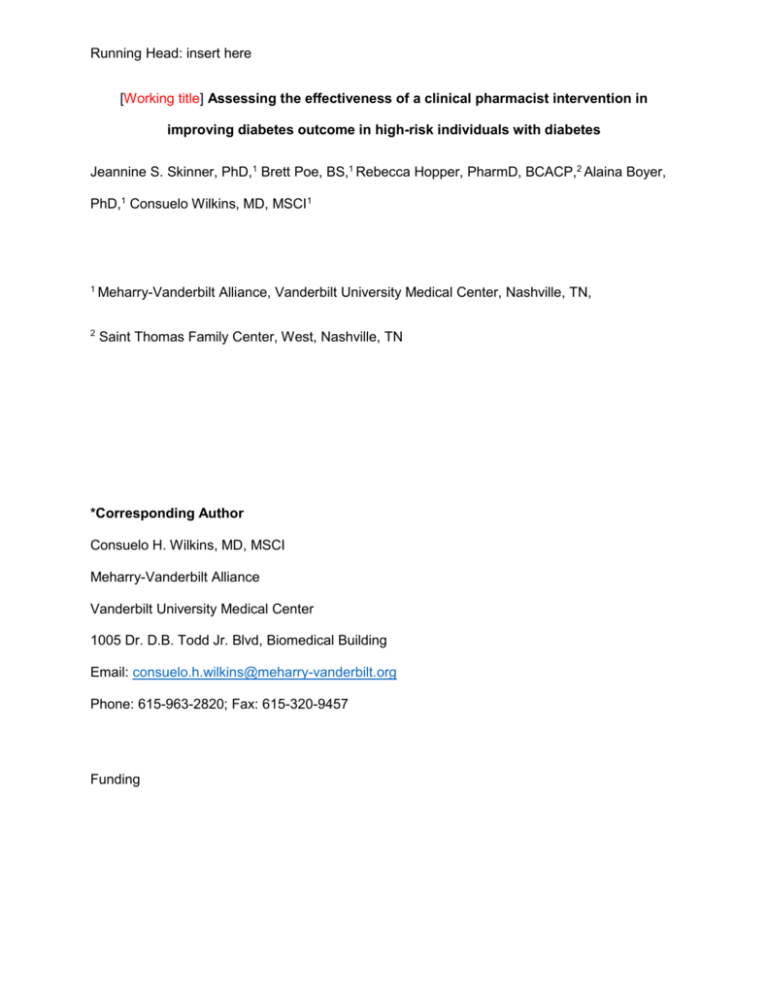
Running Head: insert here [Working title] Assessing the effectiveness of a clinical pharmacist intervention in improving diabetes outcome in high-risk individuals with diabetes Jeannine S. Skinner, PhD,1 Brett Poe, BS,1 Rebecca Hopper, PharmD, BCACP,2 Alaina Boyer, PhD,1 Consuelo Wilkins, MD, MSCI1 1 Meharry-Vanderbilt Alliance, Vanderbilt University Medical Center, Nashville, TN, 2 Saint Thomas Family Center, West, Nashville, TN *Corresponding Author Consuelo H. Wilkins, MD, MSCI Meharry-Vanderbilt Alliance Vanderbilt University Medical Center 1005 Dr. D.B. Todd Jr. Blvd, Biomedical Building Email: consuelo.h.wilkins@meharry-vanderbilt.org Phone: 615-963-2820; Fax: 615-320-9457 Funding Running Head: insert here Abstract Purpose: Methods: Results: Conclusion: Running Head: insert here Introduction T2DM is a major public health problem T2DM health outcomes in high-risk populations o Barriers in this population (medication adherence, self-care rituals) Effectiveness of educational interventions o Pharmacist interventions Specific Aims o 1-Compare adherence to medication between high-risk diabetic patients that received or did not receive clinical pharmacist MTM o 2- Compare patient clinical health outcomes (HbA1C, blood pressure, cholesterol, renal health ) Running Head: insert here Methods Design Sample- (source of sample, subject eligibility, inclusion/exclusion criteria) Measures-(IV= MTM; DV= medication adherence, glycemic control (HbA1C), BP, lipids, renal function) Analytic Plan-Mann-Whitney tests for nonparametric data 2-group comparisons were employed due to violations of normality in continuous dependent variables. For the first analysis, group differences in dependent variables were compared between the MTM group and non-MTM. Pearson chi-square test was used to determine group differences in categorical dependent variables. Results Descriptive Major Outcomes Medication adherence (p<.0001) o MTM group - 64.6% o Standard care - 9.8% HbA1c levels (p<.0001) o MTM – 7.52 o Standard care – 10.59 Cholesterol management o Reduced LDL-Chol in MTM group (89.3 v 118.5 [p<.05]) o Reduced triglycerides in MTM group (172.9 v. 252.5 [p<.05]) Running Head: insert here Discussion/Conclusion Summary of key findings o o Bridge findings to relevant work o o Briefly discuss prior work that reports similar and dissimilar findings Significance of improved clinical measures (HbA1C and cholesterol levels) in T2DM populations Emphasize ways current work enhances prior work o o o MTM group had a significantly higher rate of medication adherence than standard care group. MTM group had a better health profile as demonstrated by clinical outcomes (lower HbA1C, LDL, triglycerides) than standard care group Results set the stage for larger prospective studies and RCT educational interventions Informs community health by helping to advance the scientific community’s understanding of diabetes self-management in high-risk populations Provides information on multiple clinical health outcomes (HbA1C, BP, cholesterol, renal health) important in T2DM Highlight limitations o o o Small sample size Retrospective case-control design- ( design is limited to associations, cannot demonstrate causation) Lack of standardized MTM protocol and documentation Implications and/or Recommendations for Practice Next step of study is to further examine improved clinical outcomes and develop a standardized data recording tool for MTM that can be used in clinical practice MTM data capturing tool can be used to manage a range of chronic conditions Running Head: insert here Acknowledgements References Running Head: insert here Tables Table 1. Sample/ Demographic Characteristics According to Group Allocation MTM Non-MTM n=50 n=50 Age, years 57 ± 9.8 50 ± 13.7 Sex, male 28% 56% Caucasian 29 [58%] 20 [40%] Black 12 [24%] 19 [38%] Hispanic/Latino 7 [14%] 5 [10%] Other 9 [18%] 9 [18%] 36.3 ± 9.2 32.8 ± 8.1 Race/ Ethnicity (n[%]) BMI, kg/m2 Note: Mean±SD; BMI=Body mass index Running Head: insert here Table 2: Medication Adherence and Clinical Health Outcomes by Group Allocation MTM Non-MTM n=50 n=50 64.6% 9.8% 7.5 ± .42 10.6 ± 2.1 Systolic Blood Pressure 138.7 ± 22.1 139.3 ± 20.73 Diastolic Blood Pressure 73.3 ± 12.4 73.3 ± 13.7 HDL 47.7 ± 9.4 45.1 ± 13.1 LDL 89.3 ± 31.2 118.5 ± 82.6 Triglycerides 172.9 ± 75.1 252.5± 168.2 1.02 ± 0.7 1.05 ± 1.1 Medication Adherence (%) HbA1C (%) Creatinine Note: Mean±SD; HbA1C= glycated hemoglobin; HDL=high density lipoprotein; LDL= low density lipoprotein Figures Legends
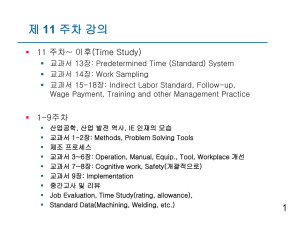

![Masood Textile Mills [Erum Zahoor]](http://s2.studylib.net/store/data/005544654_1-c63f8378e6188468be9b937fd88ad22c-300x300.png)
